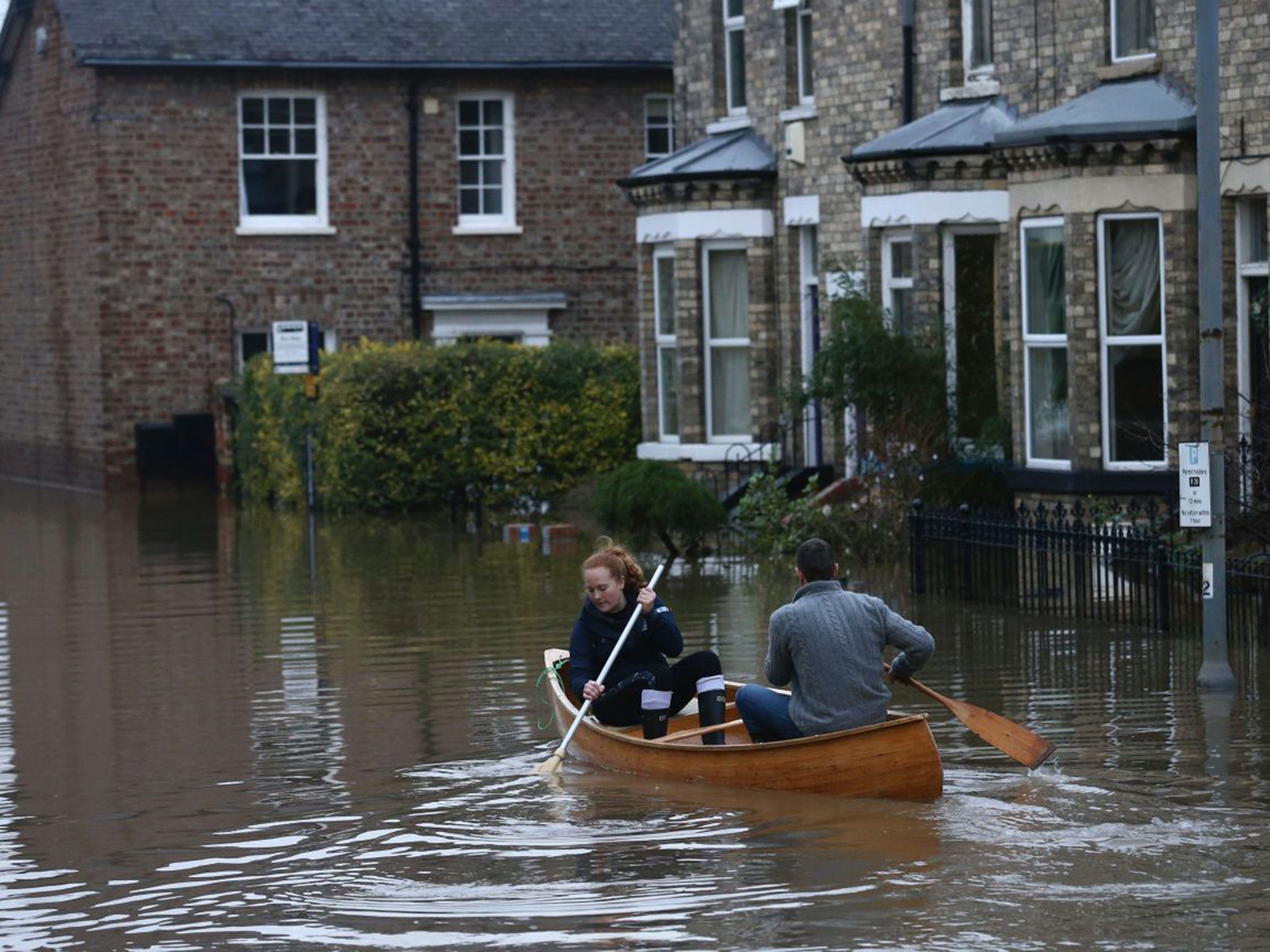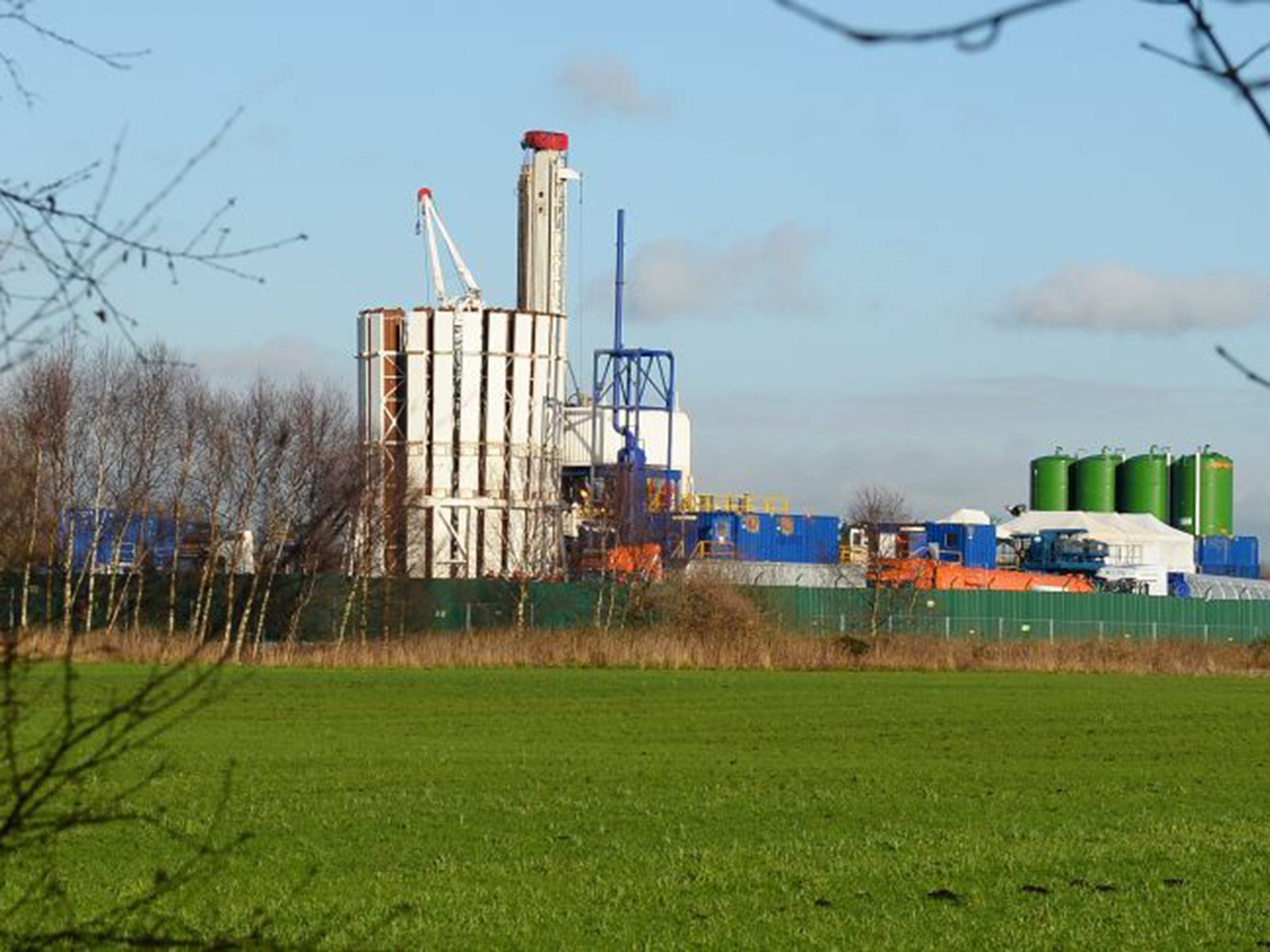Householders affected by floods face insurance double-whammy if they live nearby planned fracking sites
Householders could face an insurance double-whammy if they live within a five-mile radius of shale gas exploration sites

As householders across the UK continue the great flood clean-up, many are battling with insurance companies. Some are discovering that they now face an insurance “double whammy” – especially if they live in one of the areas covered by the new fracking licences announced by the Government before Christmas.
Many of the UK’s best known insurance companies will not insure against fracking-related damage, an investigation by The Independent on Sunday and the campaign group Spinwatch has found.
This could include contamination caused by polluted water from a fracking site being spread during exceptional flood events and could also include groundwater contamination from underground fracking operations. Companies representing two thirds of the UK insurance market will not insure against damage caused as a result of fracking, or else have exemptions covering potential pollution of water from the controversial technique. This means tens of thousands of people will find it difficult to insure themselves against fracking-related damage to their property or land.
One in five of the 150 new fracking sites announced have been designated as having a significant risk of flooding and some flooded over the past month.
Top domestic insurers were approached by a test consumer saying they lived within five miles of a proposed fracking well in Ryedale, North Yorkshire, where Third Energy has applied to frack. The application could be decided by North Yorkshire County Councillors next month, as the council is under pressure from the Government to fast-track shale gas exploitation.

Insurers were asked whether they would provide cover against fracking-related damage, as well as contamination of water supplies. They were also asked if premiums would increase. Most declined to comment about increased premiums but some acknowledged that where there had been a high rate of claims then premiums will generally rise.
The UK’s biggest domestic insurer, Direct Line, said although “subsidence and earthquake caused by fracking are covered as they are insured risks”, there is “no cover for contamination caused by fracking as contamination is a general exclusion of our policy”.
Lloyds Banking Group, the UK’s second largest insurer, confirmed that policyholders “would be protected against major perils – ground movement, earthquake and explosion”. It was therefore “likely we might offer assistance if affected by similar damage”. However, asked what the insurers meant by “likely”, Lloyds declined to reply. It also pointed out that “for a claim to be successful, you would have to be able to prove that fracking is the actual cause of the damage”.
Experts warn this will be a high hurdle to overcome for most households, as potential water contamination problems could occur thousands of feet below ground or on the surface during flooding
More Th>n said it would not cover contamination or earthquakes caused by fracking; and Axa replied that water contamination “would not be covered by home insurance; you would need to contact your water supplier”. Both Allianz and Nationwide said they would not cover contamination either.
Other companies outlined exemption clauses; Aviva said: “In the event of pollution or contamination … our policies contain a general exclusion of loss, damage or liability by pollution or contamination unless due to sudden and unexpected accident.”
LV= said that although it would cover fracking, “If the damage was caused by poor workmanship of [fracking] contractors, this would not be covered.”
Among those who would insure against the controversial technique, Legal & General said: “There is no exclusion in our policy wording for any loss or damage caused by fracking.”
The shale gas industry and the Government admit that insurance is a problem. Last year Ken Cronin, head of UK Onshore Oil and gas, the industry trade body, conceded that it was an “area of concern”.
A Defra report published last year admitted that fracking could cause nearby house prices to fall by up to 7 per cent and create a risk of environmental damage.
It also warned that leakage of waste fluids could affect human health through polluted water, and that properties located within a five-mile radius of a fracking operation “may also incur an additional cost of insurance, to cover losses in case of explosion on the site”.
Join our commenting forum
Join thought-provoking conversations, follow other Independent readers and see their replies
Comments
Bookmark popover
Removed from bookmarks